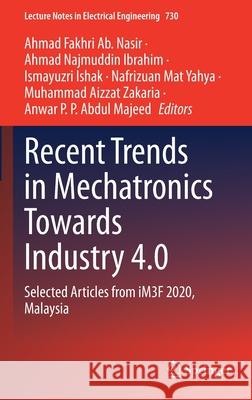Recent Trends in Mechatronics Towards Industry 4.0: Selected Articles from Im3f 2020, Malaysia » książka
topmenu
Recent Trends in Mechatronics Towards Industry 4.0: Selected Articles from Im3f 2020, Malaysia
ISBN-13: 9789813345966 / Angielski / Twarda / 2021 / 1022 str.
Recent Trends in Mechatronics Towards Industry 4.0: Selected Articles from Im3f 2020, Malaysia
ISBN-13: 9789813345966 / Angielski / Twarda / 2021 / 1022 str.
cena 1008,75 zł
(netto: 960,71 VAT: 5%)
Najniższa cena z 30 dni: 963,86 zł
(netto: 960,71 VAT: 5%)
Najniższa cena z 30 dni: 963,86 zł
Termin realizacji zamówienia:
ok. 22 dni roboczych
Bez gwarancji dostawy przed świętami
ok. 22 dni roboczych
Bez gwarancji dostawy przed świętami
Darmowa dostawa!
Kategorie:
Kategorie BISAC:
Wydawca:
Springer
Seria wydawnicza:
Język:
Angielski
ISBN-13:
9789813345966
Rok wydania:
2021
Wydanie:
2022
Numer serii:
000367340
Ilość stron:
1022
Waga:
1.61 kg
Wymiary:
23.39 x 15.6 x 5.41
Oprawa:
Twarda
Wolumenów:
01
Dodatkowe informacje:
Wydanie ilustrowane











